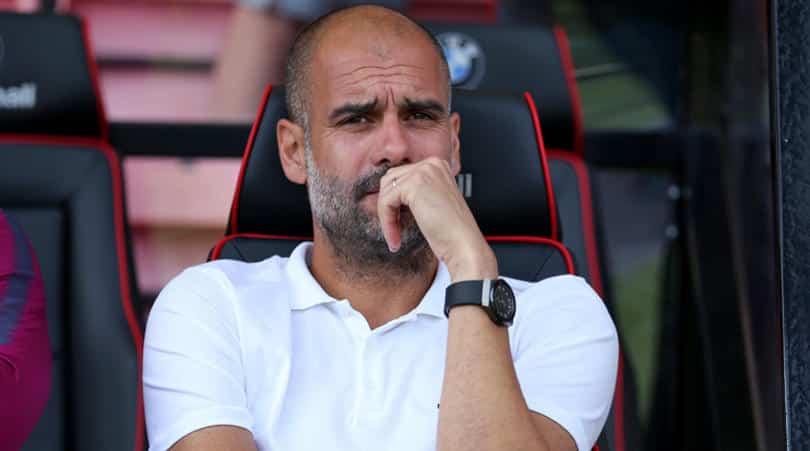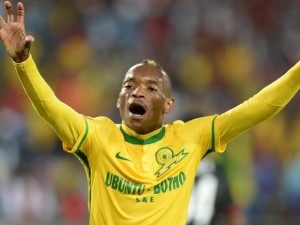The acclaimed coach Pep Guardiola was supposed to bring an exciting new dawn – instead, he’s just another spendthrift boss.
These days, any mention of the word ‘philosophy’ in relation to a football manager tends to prompt sneers.
In England at least, the word has come to connote a kind of haughty high-mindedness, the assumption being that that any coach purporting to exist on a higher plane to their peers is some sort of charlatan trying to kid us with empty rhetoric. It’s largely true, too – not least when it comes to the European giants, who largely work from the same blueprint of eat, sleep, spend, repeat.
Yet, every so often a team comes round that really do things differently; that do justify the use of the P-word. Pep Guardiola’s Barcelona side were such a team. Not because of the mind-zapping football they played, but because of the way the side were put together: a whopping core of academy graduates as their backbone, youth perpetually being ushered through. There were signings, sure, even the odd expensive one. But the beating heart of that side was fashioned organically.
It was a formula that made a mockery of the idea that a superclub’s short-term demands militate against the long game of promoting youngsters, and that buying big is the surest way to rouse a slumbering giant. It was that unyielding and implausibly rewarding faith in youth, more than any passing combinations or pressing patterns, which marked Guardiola out as a singular presence at football’s sharp end.

It’s a status he can no longer lay claim to. Guardiola’s ‘philosophy’ is no longer a credible concept after a transfer window in which he has addressed the same problem he faced in Barcelona – ailing club, ageing squad – by reaching into a bottomless sack of cash and throwing fistfuls of money into the wind.
However City perform this season, this was the summer Guardiola cashed in his values.
Manchester City’s academy side have reached each of the last three FA Youth Cup finals, but over the last couple of months, Guardiola’s first port of call (and then his second, third and fourth) has been to spend big on a superstar.
It marks a sharp contrast to the summer of 2008, when he began his great Camp Nou rejuvenation project by ushering Pedro and Sergio Busquets away from B-team duties, and dealt with the departures of Deco and Ronaldinho, not by parachuting in more A-listers, but by encouraging Lionel Messi and Andres Iniesta to step things up a notch or two.
Dani Alves was a lone headline acquisition alongside a clutch of more thoughtful, low-key ones (including the cut-price retrieval of La Masia graduate Gerard Pique), and over the course of Guardiola’s tenure that was largely how things continued. Over the next three years, 10 players were signed – only one big name each summer – while 13 youth-teamers were handed league debuts.
It was hardly an era of austerity, but modest compared with his year or so thus far at City, in which he has signed 18 senior players and allowed precisely zero academy players to try their hand at Premier League football.

And while comparing today’s transfer fees with those a decade ago is a wildly imperfect science, it is instructive to see that City have already spent roughly double in Guardiola’s 14 months at the helm that Barcelona did in his 48 months at the Camp Nou. Many expected his arrival in England to be an education – and indeed he has already enlightened us hugely about the vastness of Abu Dhabi’s sovereign wealth.
The counter-argument to all this is that you need to have the players there in order to be able to call on them – and that that generation of La Masia alumni was a once-in-a-lifetime batch.
True enough. But as well as ignoring the fundamentally chicken-and-egg nature of the youth-promotion dynamic (was Sergio Busquets entrusted by his coach because he was a great player, or did he become a great player because he was entrusted by his coach?), it also fails to recognise that there’s middle ground to be had – especially when the academy in question is one of the most successful in the country.
Guardiola shouldn’t be expected to stock his team with fresh-faced dynamos all well-versed in his style. But he could at least do his best to maintain something of a path from youth team to first team, to keep alive a semblance of the ideals with which he carved his reputation.
Instead, the three academy players who were granted debuts last term (all in low-key cup ties) now look to be the recipients of token outings. Pablo Maffeo and Aleix Garcia have been loaned out to Girona; Angelino to NAC Breda.
‘One of the reasons I came here is that I knew how much work they are doing with the young players,’ said Guardiola when he was appointed. ‘The fans need the players who grew up in the academy, because they feel something special about those players.’

The same line was peddled 12 months later by chairman Khaldoon al-Mubarak, who said: ‘This [coming] year we have three or four players who have a very good chance of making it to the first team … If you ask Pep today, he will tell you they can and will be first-team players at Manchester City. And that’s great because that is what we are trying to build in terms of an ethos at this club.’
Quite how that ethos, vaunted in May, ties into the £220-million splurge that marked the following three months, is unclear.
Where Guardiola once shooed out established stars to clear the way for youngsters, now he is doing precisely the opposite. Those entertaining the notion that the silky teenage playmaker Phil Foden might be set to take the baton from David Silva, will have seen their illusions shattered by the arrival of Bernardo Silva, a ready-made, £45m replacement for his namesake.
Any hopes of a plan to usher 19-year-old Tosin Adarabioyo into the fold as fifth- or sixth-choice centre back were dashed when City went after Jonny Evans, a stop-gap solution to a non-existent problem. The process had already played out, in fact, when Kelechi Iheanacho was shipped out six months after Gabriel Jesus showed up. It may well do so again, with Raheem Sterling (a rough gem if not an academy product) being offered as a makeweight in the pursuit of Alexis Sanchez.
It may seem arbitrary to choose this summer as the time to draw a line in the sand about Guardiola’s spending, a year after a similarly lavish transfer orgy (and indeed after four years at Bayern Munich when academy graduates only ever occupied the peripheries of the first team). Maybe it is. But there does feel something especially excessive about this one – £100m on right-backs! – as though last year’s methods are something to be doubled down on rather than a regretfully gaudy means to an end.
Guardiola is not the only Premier League manager to spend money this summer, of course. His City side might well win the league this year, perhaps even playing the sort of scintillating football with which he lit up Europe a decade ago. And should he conquer England’s hyper-competitive top tier, Guardiola will have once again proved himself to be a fine coach. But let’s be clear: he is no a longer unique one.
-This story originally appeared on FourFourTwo.co.za





